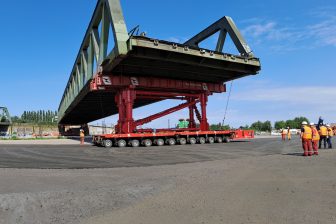Financing of aviation and maritime security measures
IP/06/1086 Financing of aviation and maritime security measures: the Commission takes stock
Brussels, Belgium – The European Commission has adopted a report on the financing of security measures in the aviation and maritime sectors. According to this report, security costs in transport can be significant and are currently largely borne by users. The report gives some insight into the different financing mechanisms which exist in the Member States and warns that the heterogeneity of approach may distort competition. It concludes that more transparency of security taxes and charges would benefit the users of transport services and that, in general, public funding of anti-terrorist measures in transport does not constitute state aid.
Vice-President Barrot declared that “The protection of citizens against terrorist attacks must remain a top priority. Security measures in aviation and maritime transport are also to be financed by public authorities, but without distortion of competition”.
In the wake of 09.11.2001 and more recent terrorist attacks, security remains high on the agenda. European legislation on aviation and maritime security has since been adopted (Regulation 2320/2002, Regulation 725/2004 and Directive 65/2005), and the Commission has already proposed the recast of the aviation security legislation (COM(2005)429 – IP/05/1178). During the legislative process, the European Parliament and the Council requested the Commission to undertake studies, addressing in particular the way the financing of security measures in aviation and maritime transport is shared between public authorities and operators in Member States. The report which the Commission has now submitted to the European Parliament and Council is based on these two studies.
In aviation, security charges for Inter Community flights represent between 1% and 2% of the average air fare. Two financing models exist, a centralized one where security is financed mainly by the State, and a decentralized one where security is provided by the airport authorities. However, in both models the passenger is ultimately the main financer of security through taxes or airline security charges.
In the maritime sector, the EU has more than 1 200 seaports, 4 000 port facilities and 9 000 ships under its flags. Although the absolute figures for new security investments per vessel are high (average of some € 100 000), they represent only a very small percentage (some 0.0006 – 0.0015 %) of overall investments. As far as port facilities are concerned, the study shows considerable variations in investments between the different types, such as multi-purpose and container facilities. This can primarily be explained by the fact that, depending on their specific activities, some types of facilities already had equipment and measures in place because of basic security requirements or to counter theft. Costs are borne essentially by the port authorities and the operators themselves.
The report concludes that increased transparency in security taxes and charges would be in the interest of users of transport services. The current lack of transparency also increases the difficulty to identify potential distortion of competition between economic operators. Furthermore, the heterogeneity of approach to the funding of security measures adds to the possibility of distortion of competition. This is particularly relevant in cases where Member States require additional, more stringent measures than those imposed by European legislation.
Finally and most importantly, the Commission considers that, in view of the fact that the protection of European citizens against terrorist attacks is essentially a State responsibility, public funding of actions to prevent such acts does not constitute State aid, as it is connected with the exercise of powers that are typically those of a public authority.
Links to the full report and studies:
http://ec.europa.eu/dgs/energy_transport/security/financing/index_en.htm
U las zojuist één van de gratis premium artikelen
Onbeperkt lezen? Profiteer nu van de introductieaanbieding voor € 10,- per maand.
Bent u al abonnee?



